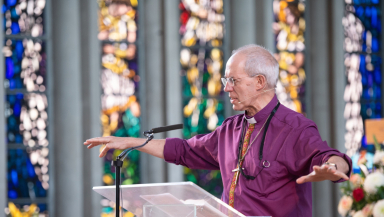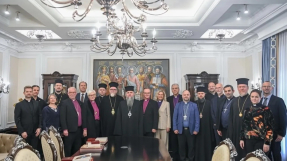
Critics have suggested that former Archbishop of Canterbury, Justin Welby, is at least partly responsible for the latest schism within Anglicanism, following a breakaway move by Gafcon, the traditionalist Global Fellowship of Confessing Anglicans.
Last week Gafcon announced that it no longer recognises the authority of the Archbishop of Canterbury, traditionally the head of Anglicanism worldwide. Other Institutes of Communion, such as the Lambeth Conference and the Anglican Consultative Council (ACC) have also been rejected.
In its statement, Gafcon chairman, Archbishop Laurent Mbanda said, "We cannot continue to have communion with those who advocate the revisionist agenda, which has abandoned the inerrant word of God as the final authority and overturned Resolution I.10, of the 1998 Lambeth Conference."
He added, "We have not left the Anglican Communion; we are the Anglican Communion."
The Gafcon aligned group will refer to itself as the Global Anglican Communion, while those who recognise the Archbishop of Canterbury will simply be the Anglican Communion.
The move was apparently sparked by the appointment of Sarah Mullally, a progressive, as the first female Archbishop of Canterbury.
However General Synod member and theologian, the Rev Dr Ian Paul, suggested that this may simply have been the straw that broke the camel's back.
Speaking to Premier Christian News, Dr Paul said that Welby could have done more to maintain good relations with the global Communion.
“I think that the Archbishop and the Communion as a whole have failed," he said.
"They failed to maintain fellowship, they failed to listen to the voices of those in Africa and Asia.
"They've failed to hold to account provinces which say, ‘we're just going to do our own thing, and do not feel obliged by the bonds of fellowship’.”
His thoughts were echoed by Susie Leafe, the director of orthodox group, Anglican Futures.
“I think it's absolutely the failure of the Instruments of Communion, of the Archbishop of Canterbury, and I think it's been because they've tried to institutionally hold the Anglican Communion together," she said.
"They've focused on keeping people coming to meetings, keeping people giving money, those kinds of things. But what they haven't done is looked at the very fundamentals of why we're gathering together.”













